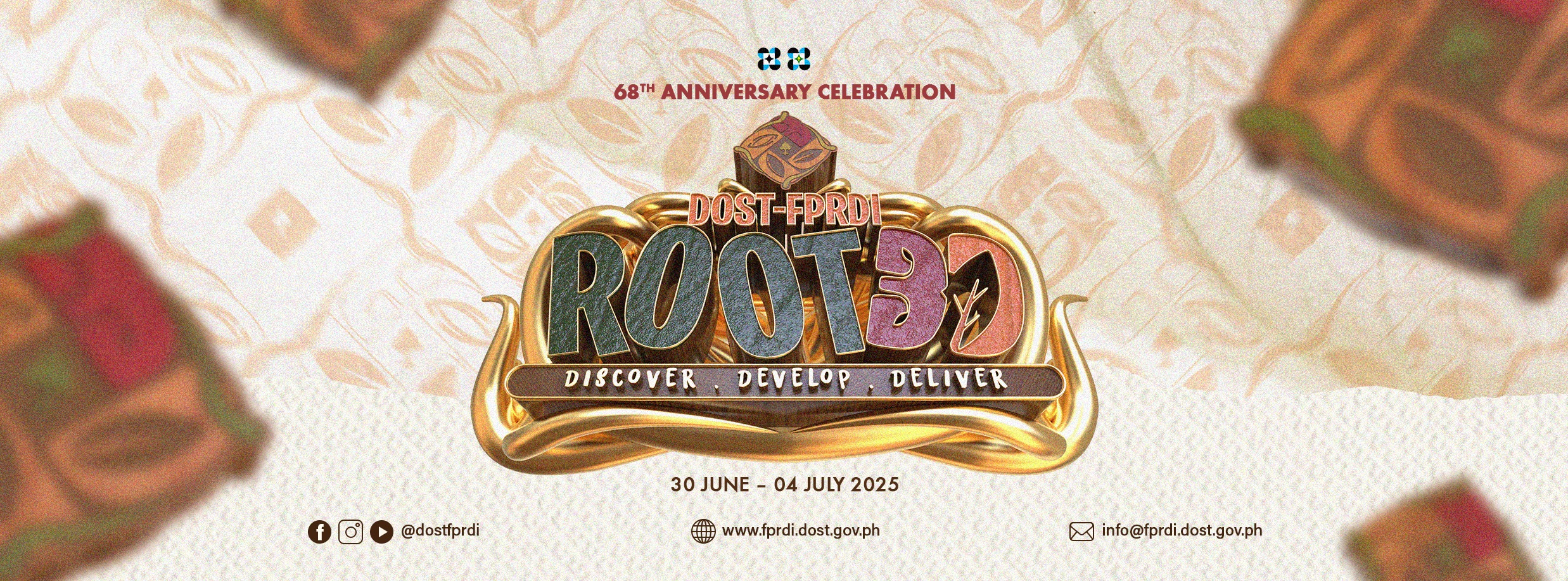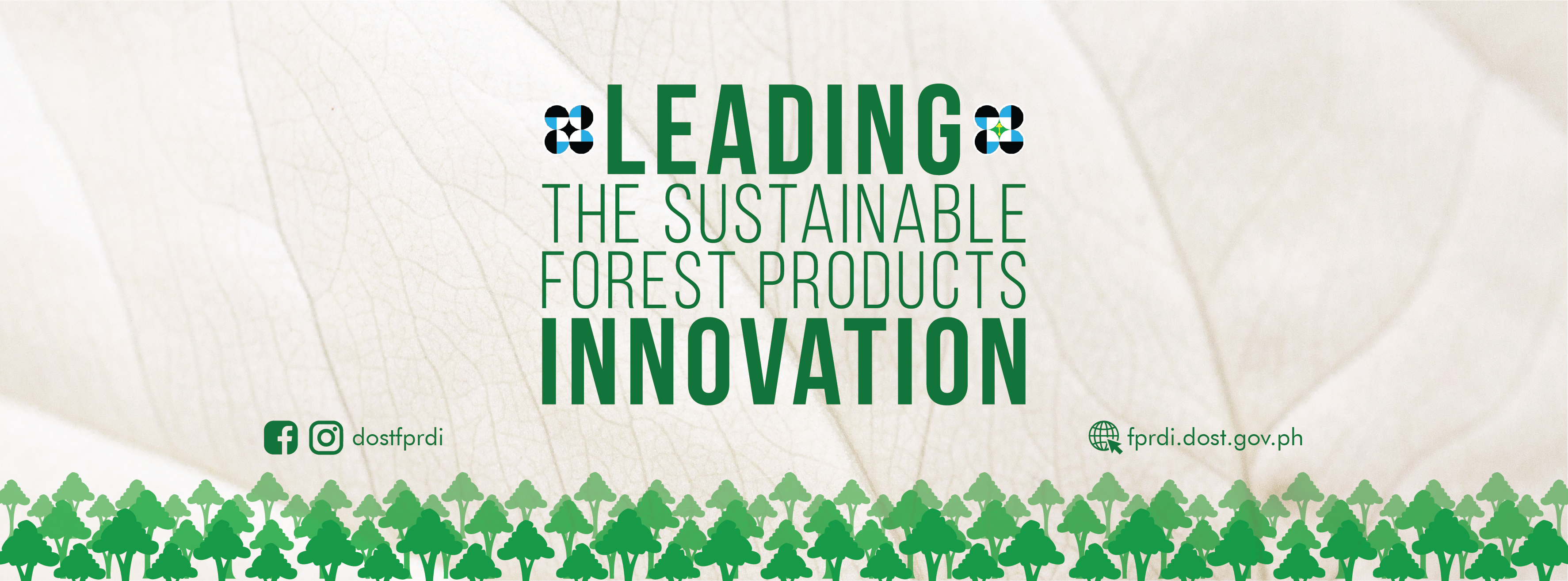DOST-FPRDI launches Flavors & Fragrances Program
- Details
Something aromatic and delicious is brewing at DOST-FPRDI.
Last 21 June 2022, the Institute launched an R&D Laboratory Facility to beef up its Flavors and Fragrances from the Forest Technology Program (F3TP).
F3TP is the newest R&D initiative of DOST-FPRDI and aims to tap underutilized non-timber forest products (NTFPs) for food, medicine, flavors and essences. In the next 10 years, its goal is to contribute in creating a globally competitive and sustainable forest flavors and fragrances industry in the Philippines.
DOST-FPRDI to give free CPD training-webinars
- Details
Forestry professionals seeking to earn Continuing Professional Development (CPD) units may join select training courses offered by the DOST Forest Products Research and Development Institute (DOST-FPRDI) — for free!
The following are this year’s DOST-FPRDI CPD training-webinars:
- August 18: Physical and Mechanical Properties of Wood and Non-Wood Forest Products (Level 1)
- August 25: Physical and Mechanical Properties of Wood and Non-Wood Forest Products (Level 2)
- October 13: Lumber Kiln Drying: Theory, Operation, Practices (Level 1)
- October 20: Lumber Kiln Drying: Kiln Operation and Quality Control (Level 2)
DOST-FPRDI to study lesser-used bamboo species
- Details
How many kinds of bamboo do you know? One? Two?
Did you know that there are more than 1,500 bamboo species in the world, and many of these are found in the Philippines? Of the ones growing here, however, only a handful are popular and used commercially.
To optimize the use of the country’s rich bamboo resources, the DOST-Forest Products Research and Development Institute (DOST-FPRDI) has recently started a project that will uncover information on the basic properties of lesser-used local bamboos.











